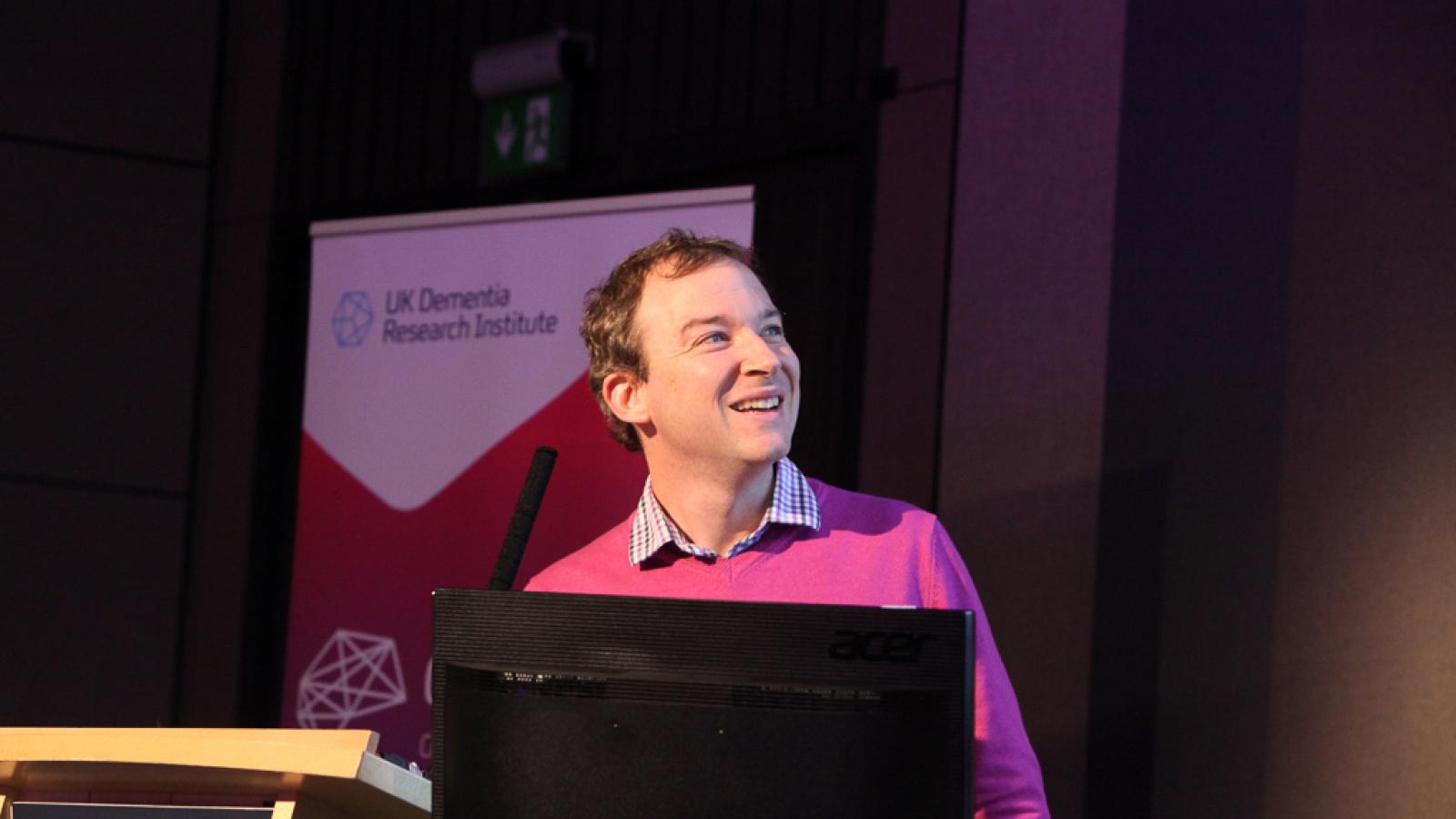Prof Vincent Dion, Group Leader at UK DRI at Cardiff, is among a select group of awardees for the first global talent Professorships from the Academy of Medical Sciences (AMS). The new funding and support scheme is designed to attract and retain world-leading scientific talent from across the globe, and support research during the initial years of an individual’s first full professorship.
The professorship package includes up to £500,000 of flexible funding and access to the Academy’s extensive network across business, industry and academia for the full five-year duration.
The AMS Professorship will allow us to stay at the cutting edge of genomics, looking for novel and innovative therapeutic avenues for previously untreatable disorders.Prof Vincent DionUK DRI at Cardiff
At the UK DRI at Cardiff, Prof Dion leads a research programme developing gene editing approaches to correct mutations in 14 different neurological and neurodegenerative diseases. While the affected gene varies, these diseases share a similar type of fault – the abnormal expansion of a three-letter DNA sequence. For example, in Huntington’s disease, CAG is repeated 10 to 35 times within the normal Huntington’s gene – but the faulty version has up 120 repeats. Importantly, the number of repeats is linked with disease severity and age of onset in individuals affected – so finding ways to shorten this sequence could offer an effective treatment strategy.
Vincent and his group are aiming to develop effective new treatments for these trinucleotide repeat disorders. He is adapting the use of sophisticated gene-editing technologies to reduce the length of the repeat sequence and developing new techniques that can switch off the faulty gene in cells. His goal is to create effective new treatments that can stop, reverse or prevent the onset or progression of these devastating diseases that currently have no cure.
You can read more about the award on the AMS website and Prof Dion’s research, in his UK DRI Profile
